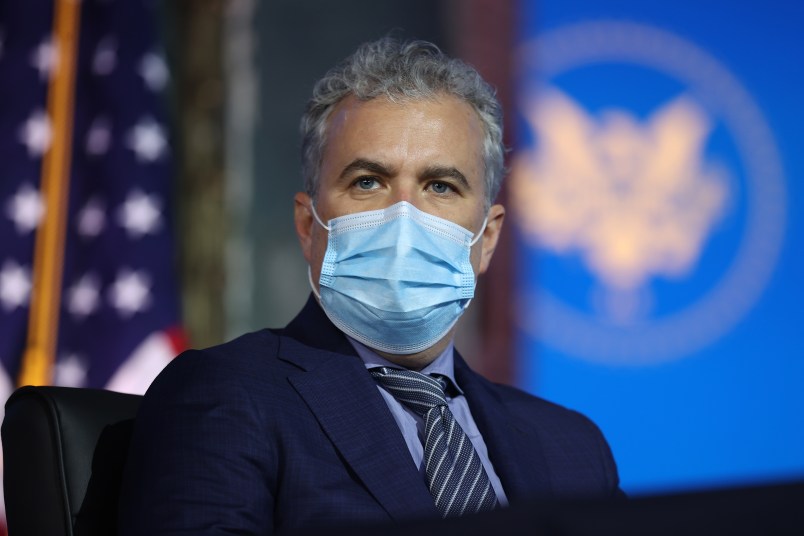White House COVID-19 response coordinator Jeffrey Zients on Sunday shared the Biden administration’s concerns with vaccine inequity, particularly in communities of color that have been “disproportionately” hard hit by the pandemic.
During an interview on “Meet the Press” on Sunday, Zients was asked whether he plans to intervene on issues related to COVID-19 vaccine inequity. Anchor Chuck Todd cited inequity to COVID-19 vaccine access in different wards in Washington, D.C., with the African American community in Ward 8 running low on supply.
Zients acknowledged that disparities in vaccine distribution are prevalent throughout country and are “unacceptable,” especially in communities of color that have been hit “disproportionately hard” by the infectious disease, suffering death rates twice the average.
“So it’s really, really important that when we come to vaccine distribution, that we do it in a fair and equitable way,” Zients said. The situation that you’re describing is not fair and equitable.”
Zients outlined the need to deliver vaccines to people where they are, and argued that community health centers are instrumental in doing so because they serve over 30 million Americans. Zients pointed to President Biden setting up a program to send vaccines directly to community health centers as well as the administration using mobile units and pharmacies to serve hard hit communities.
“So the new federal programs are all established and run with equity first and foremost in mind,” Zients said. “We are holding states and governors accountable for fair and equitable distribution of the vaccine.”
Zients went on to reiterate the difficulty in accessing COVID-19 vaccines for “too many Americans,” especially people of color.
Zients noted that in addition to increasing COVID-19 vaccine supplies, improvements on “confusing” websites and increasing call centers or other ways to schedule a vaccine are needed.
“We’re working with states to make that situation better. Many governors and states have improved their access. But we need equal access across the board,” Zients said. “We need to fix this problem. We need to hold ourselves accountable to both speed and efficiency, but fairness and equity in the distribution of the vaccine.”
Zients’ remarks follow White House press secretary Jen Psaki expressing concerns over vaccine hesitancy last week, saying that although the President expects that there will be enough vaccines for all Americans by the end of May, the country will eventually reach a point where there is more supply than demand.
Psaki particularly emphasized the Biden administration’s concerns over vaccine hesitancy in communities of color where there has been a higher level of that sentiment.
Psaki then pointed to a health equity task force led by Dr. Marcella Nunez-Smith of Yale aimed at addressing racial and ethnic disparities in health care access. The White House press secretary said that the federal task force will be responsible for closely examining issues related to vaccine hesitancy, and it plans to reach out to communities that may be skeptical of vaccine safety and efficacy.



